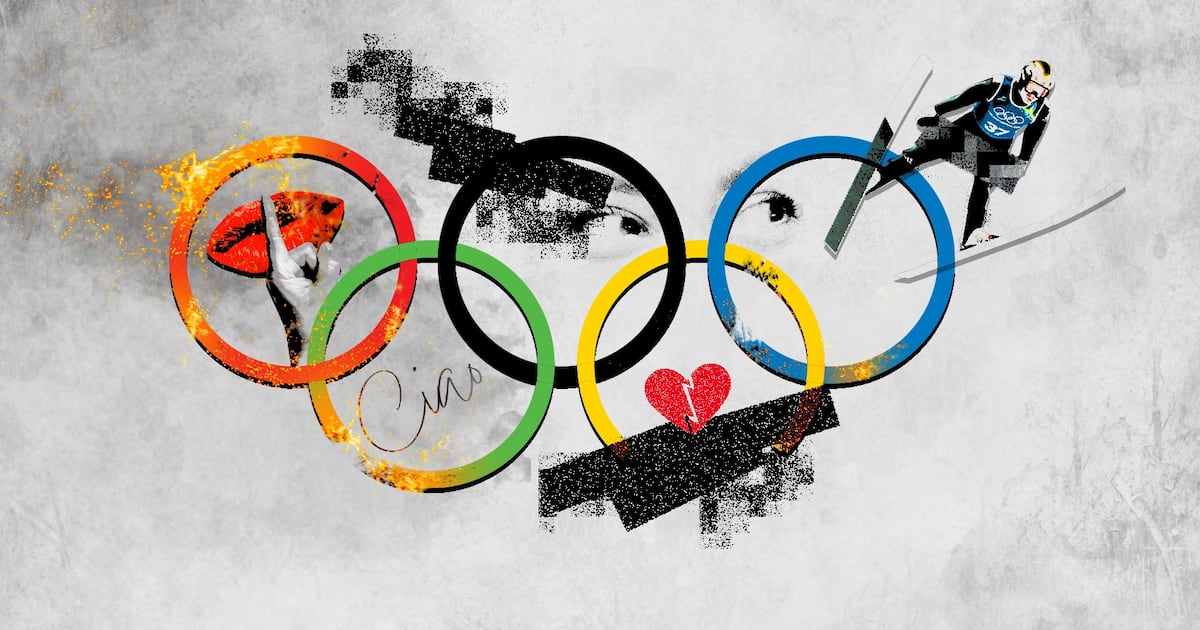It was one of the biggest cases of schadenfreude in modern legal history: an American public bent on burning at the stake a group of athletes for an alleged sexual assault, only to have the case end in an epic flameout and unequivocal declaration of innocence.

In 2006, three members of the Duke lacrosse team, Collin Finnerty, David Evans, and Reade Seligmann, were indicted on allegations that they sexually assaulted a stripper named Crystal Mangum in the bathroom of a house in Durham, N.C., belonging to players on the team. The case, which was pursued by District Attorney Mike Nifong, whipped the public into a frenzy as the players were tried in the court of public opinion. In the end, Mangum was discredited, Nifong was disbarred, and the state's attorney general proclaimed the boys' innocence.
That case is now the subject of a hefty new tome from William D. Cohan, The Price of Silence: The Duke Lacrosse Scandal, the Power of the Elite, and the Corruption of Our Great Universities, which comes out April 8.
The book provides a no-detail-is-too-small approach to the scandal and its players. Here are some of the juiciest bits of the 652-page doorstop.
Post-Scandal Hasn’t Been Kind to Crystal Mangum
In 2013, Crystal Mangum was found guilty of second-degree murder after stabbing her boyfriend of one month, Reginald Daye, 46. Mangum claimed that Daye survived the stabbing, which was in self-defense, and that it was actually the doctors and nurses at Duke Hospital who killed him. She also told the author that her children were taken away from her.
Mangum also apparently is unaware that the world has moved on. She is quoted in the book saying, “I still have faith this thing is gonna come out right. Regardless of what it looks like right now, I honestly feel like it’s gonna turn out. It’s gonna come in the right direction.”
It Also Hasn’t Been Easy for All the Players
While life seems to have moved on for the three players who were indicted—Evans graduated from Wharton School of Business in 2012, Finnerty is now a stockbroker at Deutsche Bank Securities, and Seligmann is a law clerk in Camden, New Jersey—one player who was never indicted hasn’t been able to outrun the case.
Ryan McFadyen, who sent an infamous email about the strippers, has had trouble pursuing a career thanks to the power of Google search. In the book, he tells the author that he “figured if I could get in front of people, they would look at a résumé and say ‘He’s good enough. Bring him in,’ and I can speak to them and they’ll see that I’m not what the Internet makes me out to be. I’m not the kind of monster that a lot of people preconceive me to be.”
The Author Really Doesn’t Like Roy Cooper
When District Attorney Mike Nifong stepped away from the case, it went into the hands of North Carolina Attorney General Roy Cooper, who is now running for governor as a Democrat. Cooper famously conducted his own investigation and not only announced there was insufficient evidence to proceed, but that “these cases were the result of a tragic rush to accuse and a failure to verify serious allegations … we believe these three individuals are innocent of these charges.”
In his “A Note on Sources,” the author notes Cooper’s refusal to be interviewed about the case and also his refusal to share or make public any of the documentary information he discovered during his investigation that led him to declare the players innocent.
Boys Will Be Boys
In one of the biggest “gets” of the book, Cohan interviews Robert Steel, who was the chairman of Dukes? board of trustees at the time, and a former CEO of Wachovia and former deputy mayor of New York City under Bloomberg.
In reflecting about the case Steel concluded, “I think the idea that kids do dopey things is kind of what kids do … I might personally think the cumulative impact of having strippers, swearing, making ethnic comments, using a broomstick as an alleged sex toy, rifling their purses and things like that—assuming those things are all true—I personally might feel that that’s pretty unattractive. So I do, but kids do dumb things.”
He was also pretty concerned about race-relations on campus, and potential violence from Black Panthers. “My biggest fear, some nights when I went to bed, was … that this could’ve turned into a very messy black-white confrontation with people driving by, shooting guns and things like that,” he said. According to Steel, “there were Black Panthers on campus who had guns.”
It’s Good to Be Rich in the U.S. Legal System
One of the main thrusts of Cohan’s book (indeed, it’s in the title) is that the Duke Lacrosse case is representative of a legal system in which everything is tilted in favor of the wealthy. His argument stems from the ability of the lacrosse players to pay steep legal fees “in the range of $3 to $4 million total.” That money bought the players lawyers who were adept at using the “press to try the defense’s case.”
According to the author, these high-paid lawyers also deployed a two-pronged approach that would keep the case from going to trial.
“Their whole strategy—and this amazes me—was that this case never come to trial,” Nifong speculated, “And I really didn’t think they could do that. I didn’t think they had the power to have that happen, but I was wrong.”
The first part of the defense’s strategy was to consistently attack the DNA from Mangum and the scene. The defense attorneys famously gave a press conference saying that DNA tests had proved there “is no evidence other than the word of this one complaining person that any rape or sexual assault took place in that house.” They also successfully questioned the DNA found underneath one of Mangum’s broken fingernails, as well as the DNA found on a white towel in the bathroom.
The second prong of the strategy was to discredit District Attorney Mike Nifong by filing motions to have him removed from the case, and filing complaints with the state bar association. In the motion to have him removed, the defense claimed he was pursuing the case for political reasons, and that he was ignoring the evidence, making the case “a post-hoc shakedown.”
According to Nifong, the grievance filed to the state bar alleging misconduct and alleging that he was hiding exculpatory evidence was the result of “some pressure being put on the state bar by the attorneys for the Duke lacrosse players … they wanted action immediately … that would be to force me out of the case.”
The end result was that Nifong recused himself, was disbarred, fired, and sent to prison for a day, and eventually declared bankruptcy.
Nifong Believed He Could Have Won … And That Something Happened
“To convince a jury that she had been sexually assaulted, I didn’t think that would be difficult at all,” Nifong tells the author. He also told the state bar in 2007 that when he recused himself, he “would have to say, honestly … I think something happened in that bathroom, but I’m not sure I can actually say that I now at this point believe it was a sexual assault … Something happened to make everybody leave that scene very quickly.”
Nifong also blames the lacrosse players themselves for the scandal, telling the author in an interview that if the players had voluntarily provided DNA evidence that would have exonerated them, there would have been “no Duke lacrosse case.”
“There was only a Duke lacrosse case because they made the police put all this stuff in this affidavit that was part of the public record. If they give the sample voluntarily, there is never any doubt raised. Nothing ever happens. There’s never a Duke lacrosse case.”
Now, years removed, he still thinks something happened in that bathroom. “I believed something occurred to Crystal Mangum that night that triggered a post-traumatic stress reaction. That’s what I believe,” explained Nifong.






